Transforming Lives: Eagles Bring Solar-Powered Water Purification System to Dominican Republic Community
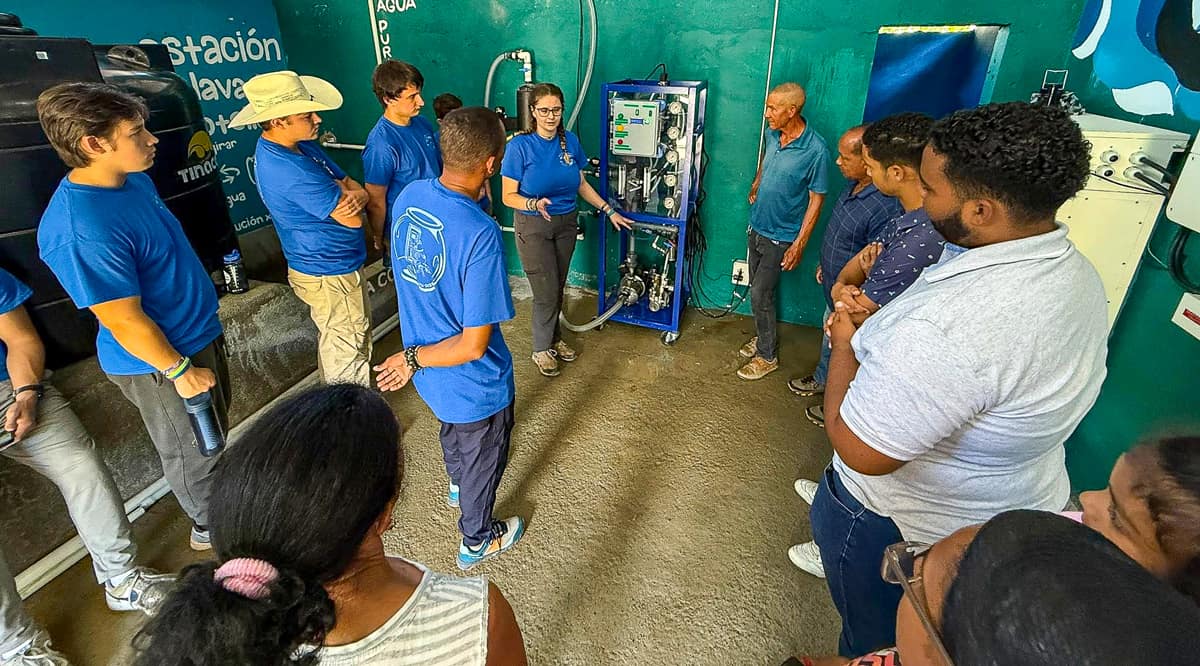
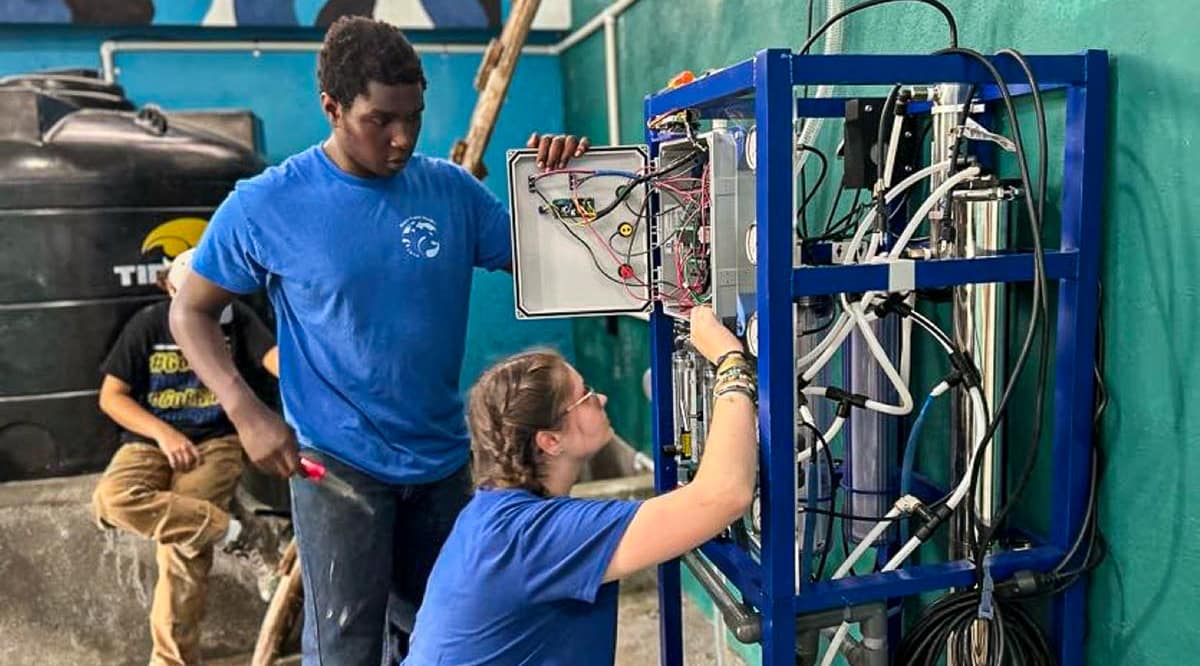
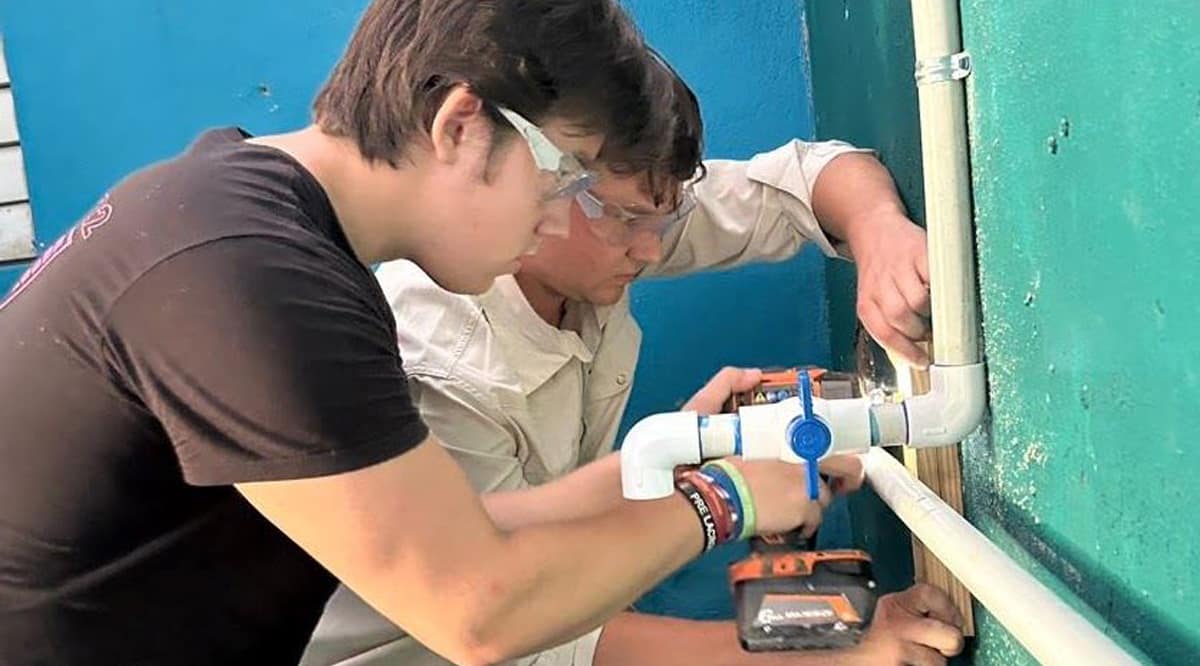
A team of Embry-Riddle Aeronautical University students used their engineering skills and knowledge to bring clean water to a community in the Dominican Republic this summer.
Twelve Pure Water Project members, led by Mechanical Engineering professor Dr. Marc Compere, traveled to Rincón De Yuboa to install a solar-powered water purification system that they designed and built in the university’s Energy Systems Laboratory. The reverse osmosis water purification system, which includes a series of filters and an ultraviolet disinfection system, was installed in a community center and can produce approximately 1,000 gallons of clean water daily.
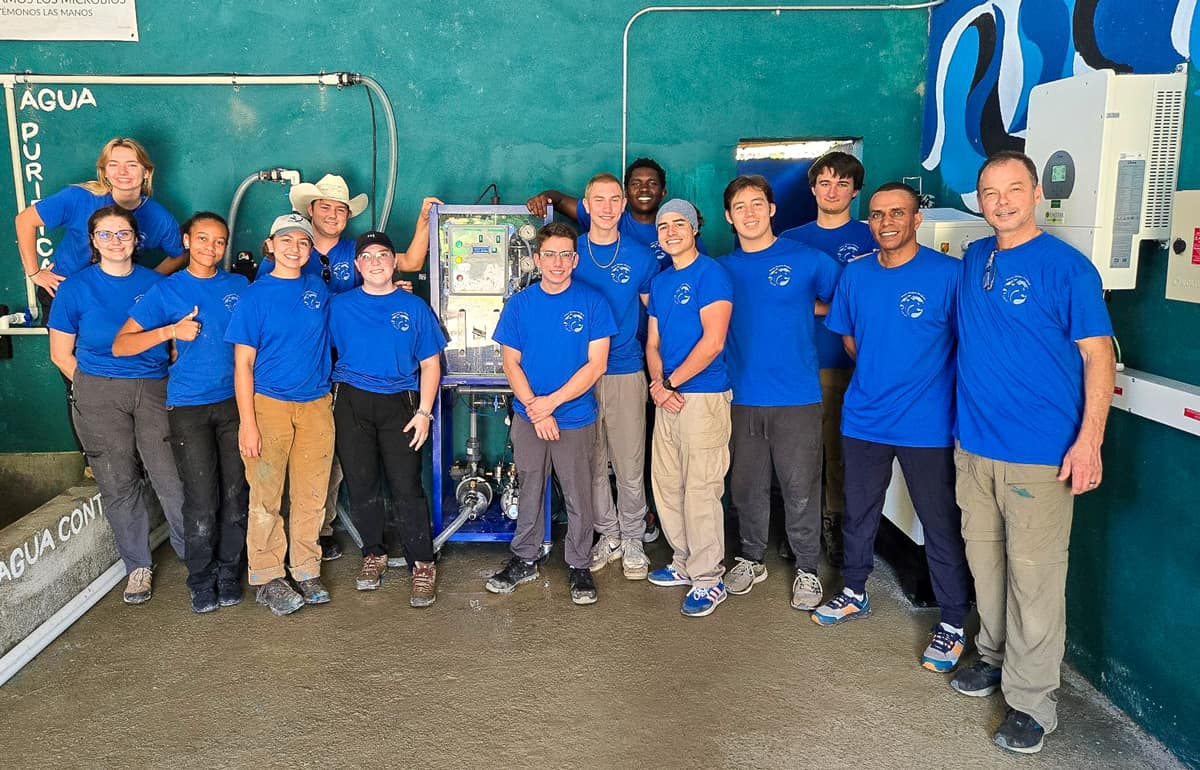
Led by Mechanical Engineering professor Dr. Marc Compere, the Pure Water Project team included a dozen Embry-Riddle students who installed a solar-powered water purification system in a community center in the Dominican Republic’s Rincón De Yuboa. This was the Pure Water Project’s 12th installation trip and the third to the Dominican Republic. (Embry-Riddle/Megan Neumann)
“The coolest thing is to see engineers go from the classroom out into the field and get things done,” said Compere. “Any technical issues ended up working out on this installation trip, because of the students’ determination and resourcefulness.”
The multidisciplinary project, a partnership with the U.S -based nonprofit Aprodeca, focuses on improving community health in a sustainable way, said Compere. Locals are trained on how to operate the system and purified water is sold locally, with the profits used to maintain the solar-powered system. Additionally, Pure Water Project’s Water Sanitation & Hygiene (W.A.S.H.) team visited local schools to lead hands-on lessons on the importance of clean water.
“I think this was the most successful installation so far, because we overcame significant issues to install the purifier more efficiently than in the last two years,” said Megan Neumann, president of the Pure Water Project who was participating in her third installation trip in a row. “Every member of our team knew the system inside and out.”
Beyond technical knowledge, Pure Water Project has also taught her about adapting to the unknowns encountered in a foreign country, such as power outages and limited resources.
“I love the way this project has helped me in life and in research,” said Neumann, a senior Meteorology student in the Honors program at the Daytona Beach Campus. “Problem solving in a stressful environment applies to everything.”
A Legacy of Providing Clean Water
The trip to the Rincón De Yuboa was the Pure Water Project’s 12th installation trip and the third to the Dominican Republic. The project, formerly known as Project Haiti, was started by Compere in 2010 to install water purifiers in Haitian orphanages, clinics and schools, particularly in areas impacted by cholera.
Political unrest in Haiti and the outbreak of Covid-19 paused the student group’s installation trips for a few years, and Compere worked to establish new partnerships in the Dominican Republic.
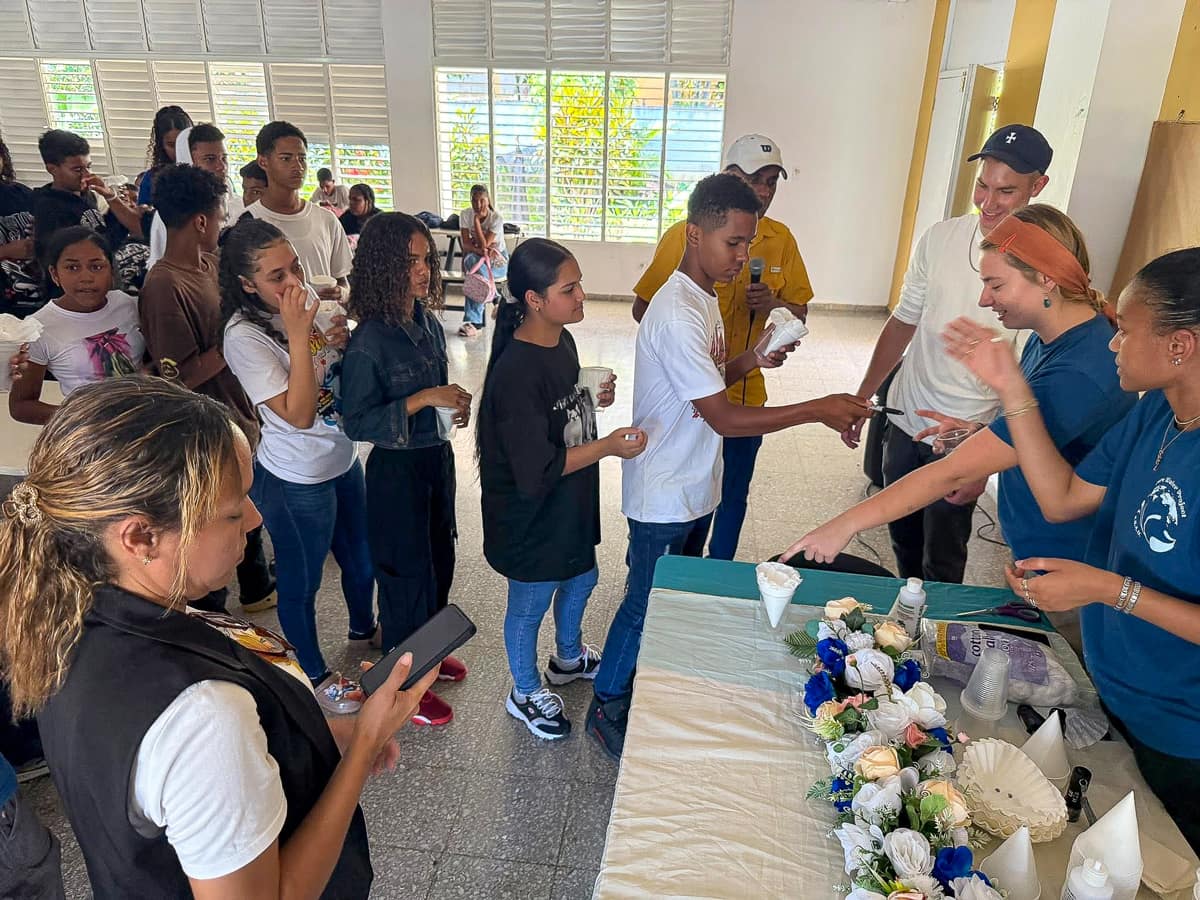
Students Ryan Croasdell, Parisse Goutier and Ethan Kaminsky lead local high school students in a water filter competition, illustrating the importance of clean water. (Embry-Riddle/Megan Neumann)Parisse Goutier, a first-year Aerospace Engineering student from Georgia, grew up in Haiti and helped her mother, a nurse, to do relief work at small mountain clinics on the Caribbean island.
“When I saw Pure Water Project’s presentation, I knew it was exactly what I wanted to do,” said Goutier, who helped design 3D-printed components for the system this year and will serve as vice president next year.
Zoey Hart, an Aerospace Engineering junior from Idaho who was the electrical lead on the project, said it’s gratifying to see how their work can help communities. For example, last year, a free dental clinic was able to provide dental surgeries and procedures in the community where the Pure Water Project had installed a system, as they now had access to a sterile water source.
“It feels great to come together with people to achieve to something bigger than yourself,” said Ryan Croasdell, a junior Mechanical Engineering student from Seattle, Washington, who led the W.A.S.H. team this year.
Pure Water Project is assisted with funding from the university, the College of Engineering, the College of Engineering Philanthropy Council and the Student Government Association. Students also apply for grants for funding. The project received $13,500 from the Procter & Gamble Company last year.
Justin Fratto, vice president of the Pure Water Project, said the organization is open to all students, including those without an engineering background.
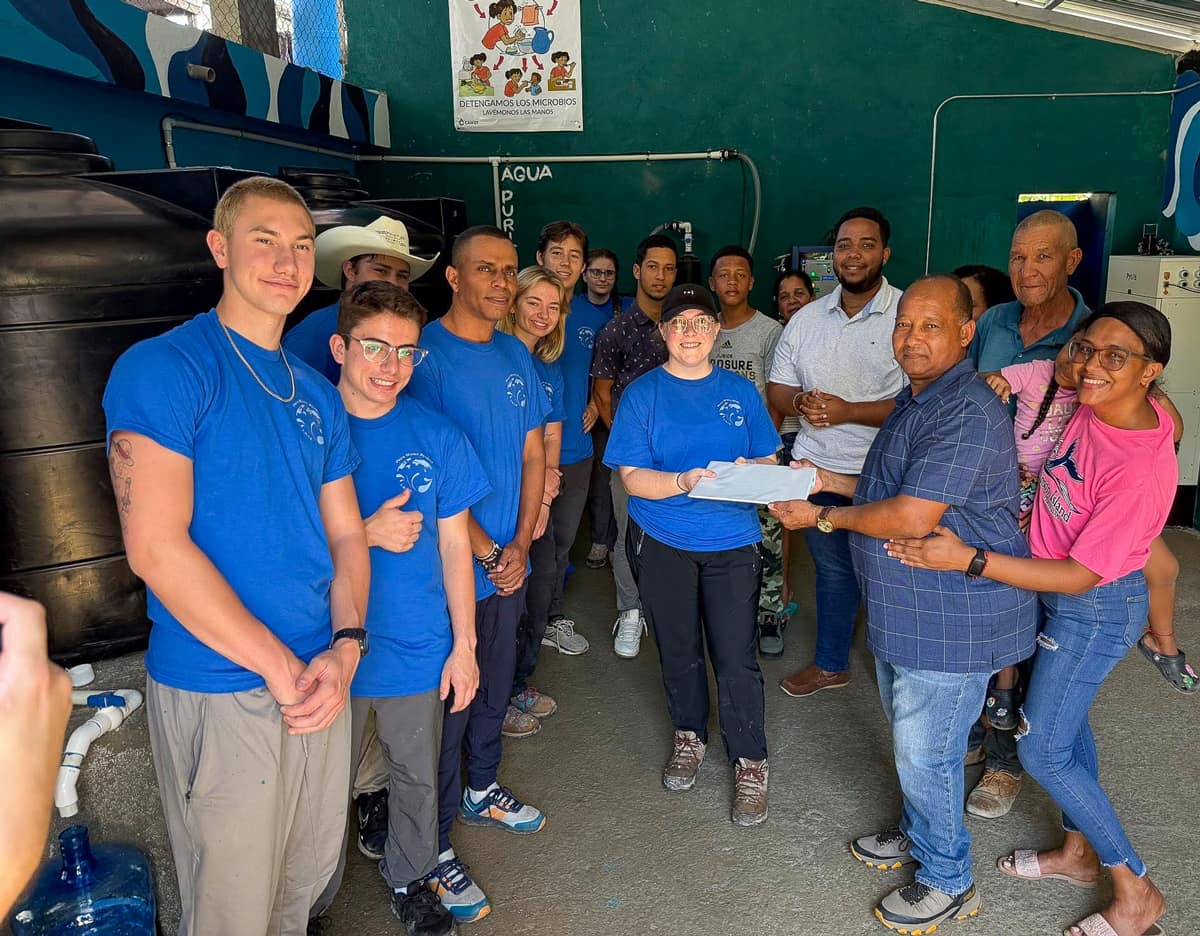 Pure Water Project president Megan Neumann hands residents the purifier user manual, with instructions in English and Spanish and all component datasheets. (Embry Riddle/Dr. Marc Compere)“This club is really welcoming,” said Fratto, a junior in Mechanical Engineering from Santa Cruz, California. “Our members teach everything to new students that they need to know.”
Pure Water Project president Megan Neumann hands residents the purifier user manual, with instructions in English and Spanish and all component datasheets. (Embry Riddle/Dr. Marc Compere)“This club is really welcoming,” said Fratto, a junior in Mechanical Engineering from Santa Cruz, California. “Our members teach everything to new students that they need to know.”
For some students, the Pure Water Project is their first experience traveling outside the U.S. and installing a project they designed, built and installed themselves, Compere said. They learn to work as a team and gain skills that are invaluable personally and professionally.
“Pure Water Project works with real people solving real problems in a fluid dynamic environment,” he said. “You see students be creative with all these differences in a foreign country, rise to the occasion and meet their goal. That’s what companies want, and this project provides it.”
Pure Water Project is continually evolving with technology, he said. This year, students were able to integrate more 3D-printed components in the system, and they plan to add internet-based remote monitoring capabilities to be able to diagnose any problems digitally and in real time.
“I’ve really enjoyed this project over the years,” Compere said. “And it’s life-changing for students.”

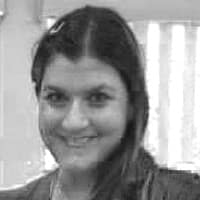 Melanie Stawicki Azam
Melanie Stawicki Azam